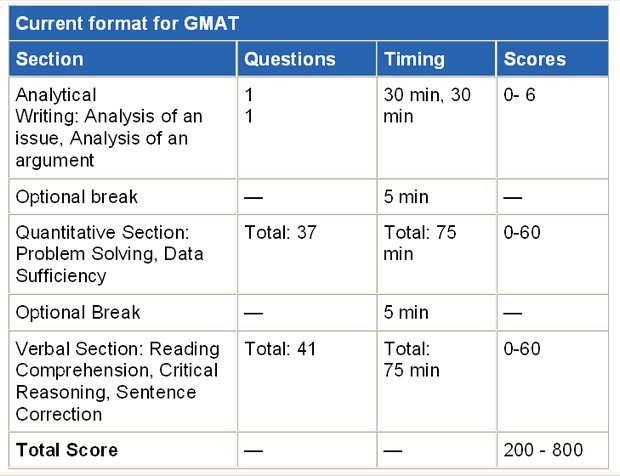 From merely testing aptitude, the famed entrance test opening the doors to hallowed B-Schools for graduate programmes in business and management is attempting in 2012 to test learning styles.
From merely testing aptitude, the famed entrance test opening the doors to hallowed B-Schools for graduate programmes in business and management is attempting in 2012 to test learning styles.
The Graduate Management Admissions Test (GMAT) is taken by aspirants who wish to pursue an MBA or MS in Finance. It is one of the oldest tests for Graduate admissions and is administered by the Graduate Management Admissions Council (GMAC), USA.
The test is accepted by almost all the premier schools and a good score of about 750 out of the possible 800 will ensure that your application is considered seriously by Ivy League schools. A top score in GMAT does not ensure automatic admission, but a low score definitely takes you out of the consideration set.
The test
Comprising three sections -- Quantitative, Verbal and Analytical Writing Ability (AWA) the test lasts for 210 minutes with two breaks in between.
The Quantitative section has two types of questions, Problem Solving and Data Sufficiency, mingled throughout the section.
The Verbal section has three types: Sentence Correction, Critical Reasoning, and Reading Comprehension; here too, the questions of each type appear in no set sequence.
The Analytical Writing Ability section has two questions, one asking you to examine an issue and anther an argument. The scoring pattern is as given below.
The new format
It will be first administered in 2012 and has a new section -- Integrated Reasoning section.
The questions will force the test taker to draw upon information from multiple sources and evolve an optimal solution. According to sources, the test is designed to mimic the kind of complex challenges students will encounter as business school students and as managers.
The section would replace one of the two analytical writing modules in the existing GMAT format so the total time remains the same. The test would be initially scored separately.
Scoring tips
The GMAT is based on a few basic concepts in the Math and Verbal section. It is the myriad application of these concepts that the test taker is actually tested upon.
What is tested is your ability to think quickly on your feet, ability complete a task within time as well as work under pressure.
Since the Computer Adaptive Test (CAT) that GMAT follows adapts questions according to your ability to answer them, you must be very careful while answering the initial questions.
Higher the difficulty of the question, better would the score. So ensure that you answer them right. Since there is no negative marking intelligent guessing would always get you a good score. Also learn to identify obvious wrong answers.
Do ensure that you answer all the questions and complete each section within the stipulated time. If any section is incomplete it affects your score by as much as 50 percent.
In the Maths section, you are tested on various topics such as permutation and combination, probability, geometry, and statistics. The questions test you on these basic concepts but are presented in the form of Problem Solving or Data Sufficiency questions.
In verbal, the question types are: Sentence Corrections, Critical Reasoning, and Reading Comprehension. If you are good in Math it does not guarantee a good score in the Math section and the same goes for verbal. It is the scaling process that determines your final score. A uniform performance gives you a better score vis-à-vis flashes of brilliance, especially across the different sections.
Usually while solving sentence correction questions, students tend to judge the answer choices by how it sounds but the problem in GMAT is that the answer choices that sound the most incorrect, may turn out to be the right answers. In Reading Comprehension, it is a myth the test taker needs to possess knowledge about the various topics on which the passages are based. It is unfeasible to know about all the topics on which the passages are designed.
Also, it's advisable that even if the candidate happens to know about the topics, he should not apply his knowledge when answering the questions. Confine yourself solely to the information provided in the passage.
Eventually, it's how you handle the pressure of taking such an enigmatic test that determines your score. Those who are confident about their approach and do not buckle under pressure are invariably the ones who do well in GMAT and may be in life as well. 
Illustration: Uttam Ghosh










